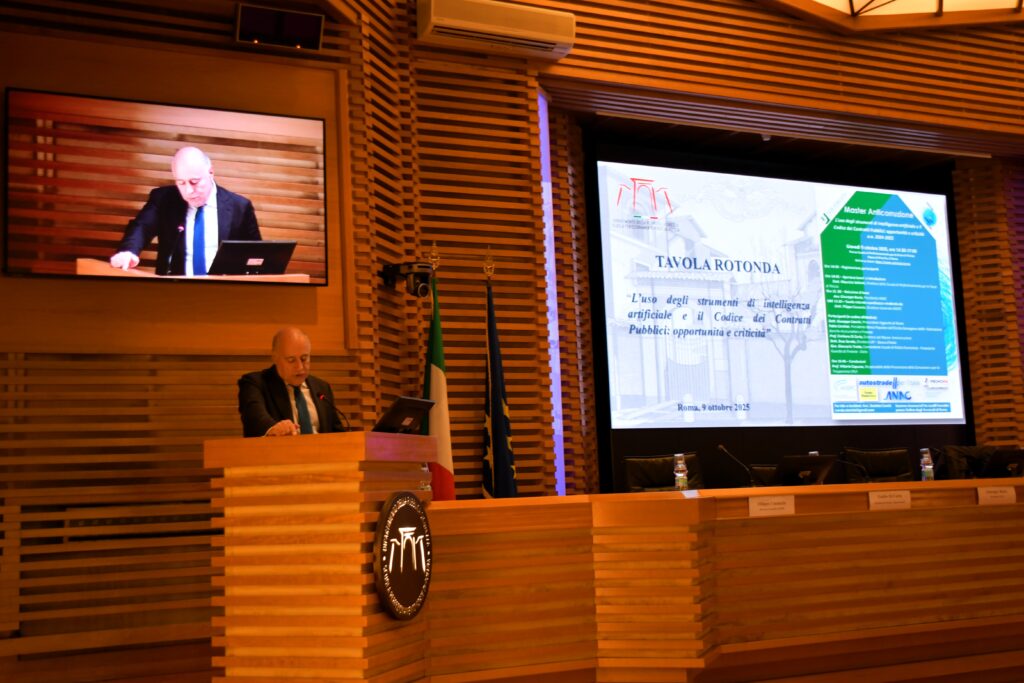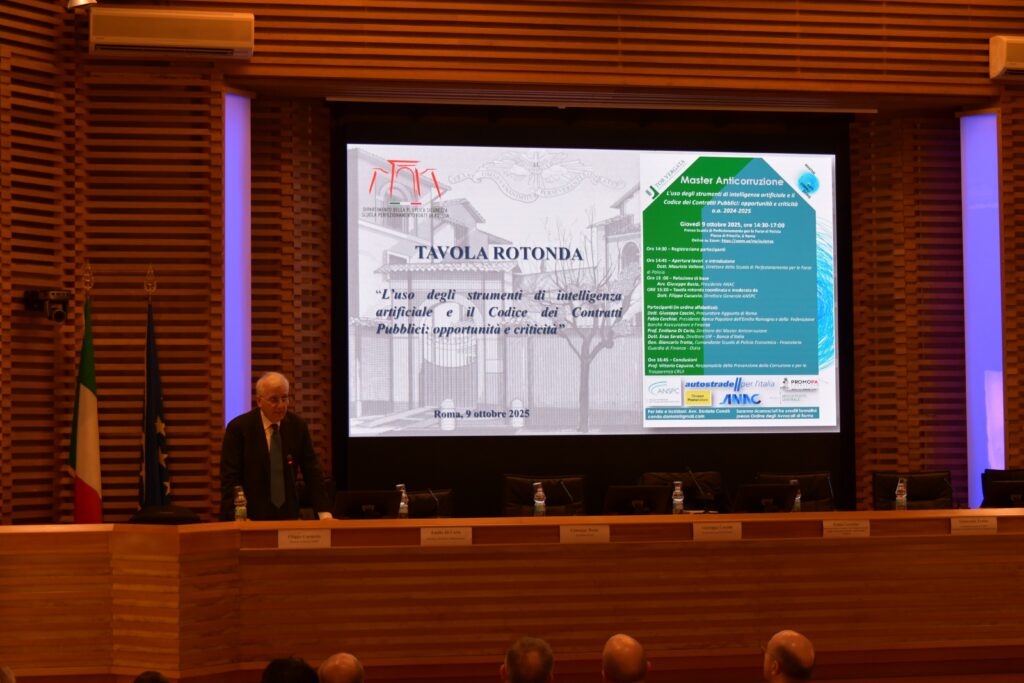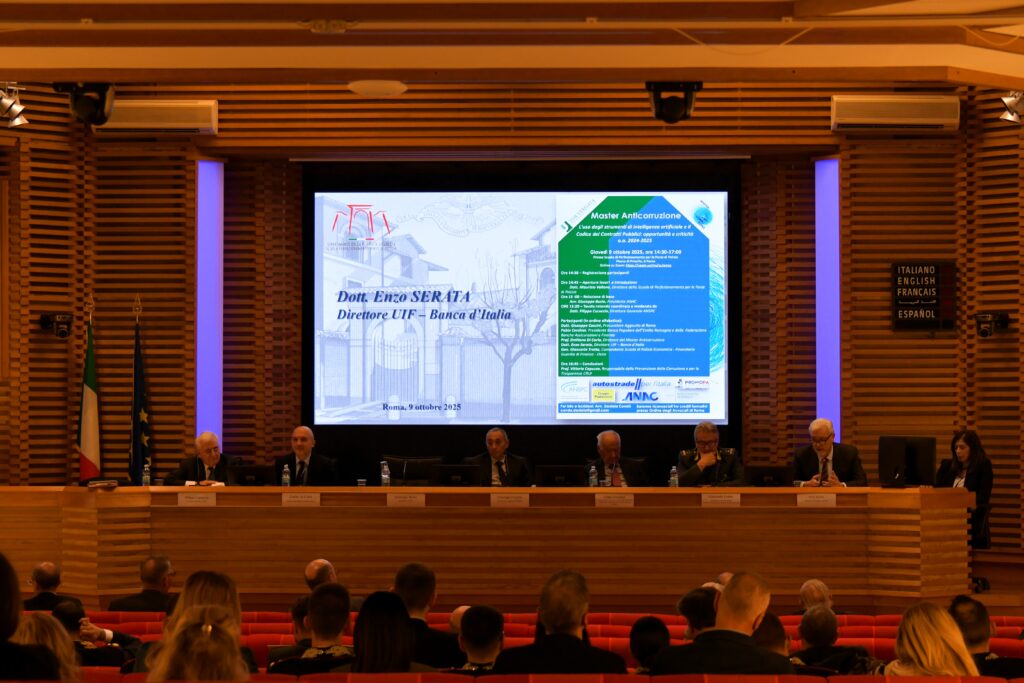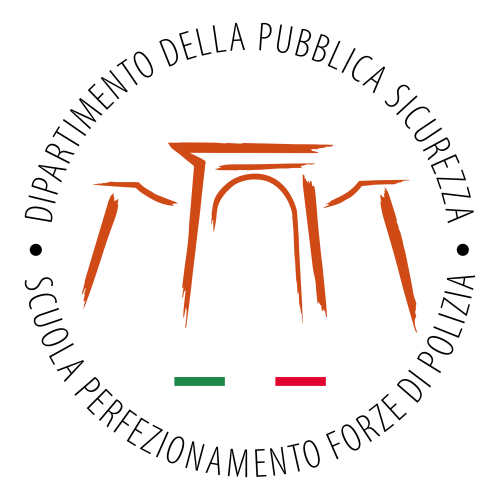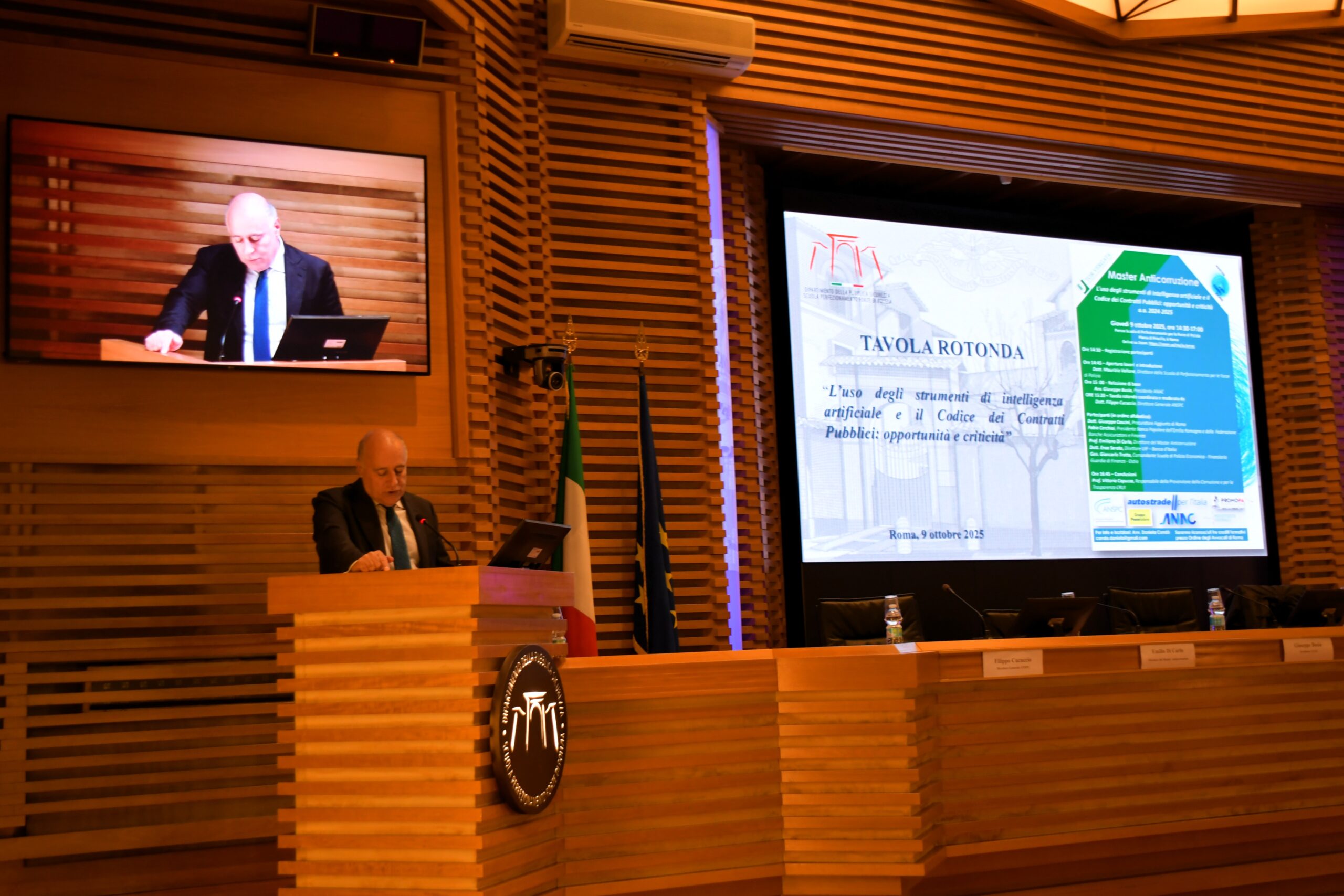The Anti-Corruption Master’s Degree provided by the “Tor Vergata” University promotes dialogue among institutions, the judiciary and academia as regards the future digitalization in the Public Administration
On 9 October 2025, the conference on “The use of Artificial Intelligence tools and the Public Procurement Code: opportunities and critical issues”, was held at the Scuola di Perfezionamento per le Forze di Polizia (SFP). It was promoted by the organizers of the Anti-Corruption Master’s Degree provided by the Rome-based “Tor Vergata” University.
This meeting represented an important opportunity to analyze, at interdisciplinary level, the impact of technological innovation on public procurement management, in a context recently regulated by Legislative Decree No. 36/2023, which emphasizes the digitalization of processes and the ethical and mindful use of Artificial Intelligence (AI).
The event was introduced by the National Police Dirigente Generale Maurizio Vallone, Director of the SFP, who welcomed the participants in this meeting and presented Mr. Filippo Cucuccio, Director General of ANSPC (National Association for Credit Management) and moderator at the conference. On this occasion, it was highlighted how the public procurement market now represents a strategic pillar for the modernization of the Public Administration. Indeed, the Public Administration must increase its outcomes and performance in terms of quantity and quality, integrating legal, ethical and technological skills, in order to become a model of efficiency and transparency.
The conference was also attended by Mr. Giuseppe Busia, President of the National Anti-Corruption Authority (ANAC according to the Italian acronym), who took the opportunity to outline the link among innovation, legality and public governance. In particular, he pointed out that “the public procurement sector contributes around 14% to European GDP”, and emphasized that this is a highly significant area in which digitalization can be a key factor in terms of “efficiency, control and legality”. At the same time, the President of ANAC pointed out that the digitalization of the public sector can never avoid taking into account three key principles, in line with the legislation in force:
- non-discrimination, to ensure that the use of data and algorithmic processing
does not produce direct or indirect discriminatory effects on natural or legal
persons;
- algorithmic transparency, to ensure that citizens are aware of the automated decision-making logics and criteria;
- non-exclusivity of the mechanical decision, in order to maintain human control at the centre of the decision-making process, thus avoiding that decisions with legal or administrative implications might be taken in an exclusively “automated” manner.
Furthermore, he emphasized, in his lecture, the urgent need to focus on training as well as on the development of digital skills, so that technology can be a tool of integrity and inclusiveness rather than a factor of inequality.
Following the lecture delivered by President Busia – described by Mr. Cucuccio himself as a lectio magistralis due to the dogmatic and theoretical completeness of its content – a panel discussion was held, in which experts from different sectors exchanged their views: Professor Emiliano Di Carlo, who expressed his enthusiasm for AI, bringing to the audience’s attention some of the results achieved thanks to the use of AI in his teaching activities and highlighting some of its technical aspects; on the contrary, Mr. Giuseppe Cascini and Major General Giancarlo Trotta, representatives of the more “operational” sector, took the opportunity to highlight the risks associated with the use of Artificial Intelligence by those who intend to make use of it for illicit purposes. In particular, the lack of regulation of AI use and, at the same time, its free and potentially extreme use could facilitate criminal groups’ activities. Finally, the representatives of the banking sector, Mr. Fabio Cerchiai and Mr. Enzo Serata, emphasized the need for public-private cooperation to ensure the monitoring, security and sustainability of public spending processes.
Professor Capuzza concluded the conference by delivering his lecture which included literary quotations and administrative law matters. Moreover, he underlined the critical issues that emerged during the afternoon regarding the use of AI, made reference to the contributions of the other lecturers and focused on the impact that AI could have on public procurement procedures. The Professor’s firm call for positivity was noteworthy, as he highlighted the opportunities that AI can offer. At the same time, he underlined the risks deriving from fully relying on it and stressed the importance to check its consequences from a critical perspective.
Finally, the results of the conference could be outlined in a final consideration according to which Artificial Intelligence represents progress – not unlike the industrial revolution – and therefore it should not be countered but welcomed, understood and used wisely. Only in this way it will bring about a higher level of professionalism and ever higher quality of work, even inside the Public Administration.
“We must use AI and not be used by it, manage it in order to avoid being managed by it”.
